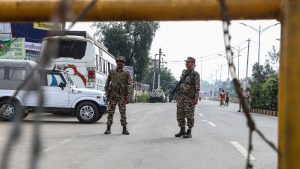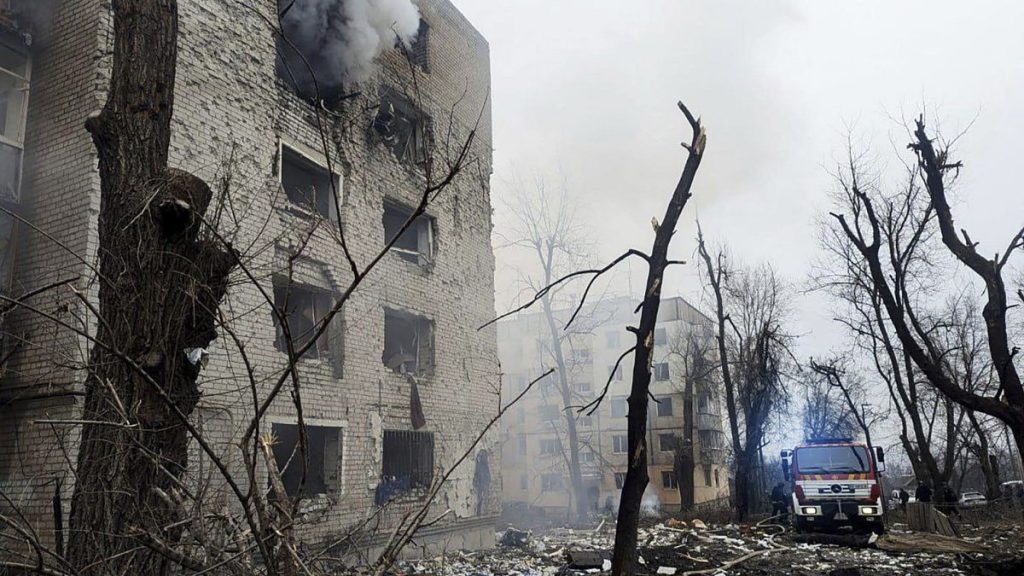The war in Ukraine continues to inflict devastating blows on civilian populations, with the city of Kryvyi Rih bearing the brunt of recent Russian aggression. A missile strike targeting an educational institution and adjacent residential buildings resulted in the tragic loss of four lives, including three women and one man. Fourteen others, including four children, sustained injuries, with some requiring hospitalization. This attack underscores the ongoing threat faced by Ukrainian civilians and the urgent need for enhanced air defense capabilities to protect them. The city, the second largest in the Dnipropetrovsk region with a population of around 660,000, has become a recurring target for Russian aerial assaults throughout the nearly three-year conflict.
The attack elicited strong condemnation from both local residents and Ukrainian President Volodymyr Zelenskyy, a native of Kryvyi Rih. Locals expressed outrage and grief, labeling the attack as genocide against peaceful educational establishments. President Zelenskyy echoed these sentiments, emphasizing the indiscriminate nature of Russian aggression and the imperative for international pressure to halt the violence. He poignantly highlighted the preventable nature of such tragedies if Ukraine had received the promised air defense systems, emphasizing the responsibility of international partners to deliver on their commitments. The strike serves as a stark reminder of the human cost of the war and the urgent need for increased support to protect Ukrainian civilians.
In the aftermath of the attack, President Zelenskyy convened a meeting of the National Security and Defense Council to address Ukraine’s defense capabilities, focusing on bolstering domestic production of weaponry, including drones, missiles, and robotic systems. This reflects a growing emphasis on self-reliance in defense production to strengthen Ukraine’s capacity to resist Russian aggression. The meeting underscored the country’s commitment to enhancing its defensive capabilities across various technological fronts. This focus on domestic production reflects a strategic move towards greater independence and self-sufficiency in military resources.
The Kryvyi Rih attack occurred shortly after a high-level delegation of UN officials met with President Zelenskyy to discuss escalating humanitarian aid to Ukraine. The UN recently launched a $3.32 billion humanitarian appeal to assist over eight million people impacted by the war, both within Ukraine and in neighboring countries hosting Ukrainian refugees. This underscores the immense humanitarian crisis unfolding alongside the military conflict, requiring significant international support to address the needs of millions affected by the ongoing violence and displacement. The appeal highlights the urgent need for financial resources to provide critical assistance to those displaced and affected by the conflict.
President Zelenskyy’s recent diplomatic efforts have focused on securing continued military support from international partners, advocating for the timely delivery of critical air defense systems. The urgency of these appeals stems from concerns over a potential shift in US policy under the incoming Trump administration. Trump’s past criticisms of US aid to Ukraine and his ambiguous pronouncements on ending the war have created uncertainty regarding the future trajectory of American support. This ambiguity raises concerns about the continuity of critical military and humanitarian aid, creating a sense of urgency for Ukraine to secure commitments from other international partners.
The uncertainty regarding future US support under the Trump administration underscores the fragility of international alliances and the potential volatility of geopolitical landscapes. Trump’s previous statements on the conflict, including his criticism of aid levels and his claim of being able to swiftly end the war, have raised anxieties within Ukraine and among its allies. These concerns highlight the potential repercussions of shifting political priorities on international relations and the importance of diversified partnerships to ensure stability and support during times of conflict. The incoming administration’s stance will undoubtedly play a significant role in shaping the future trajectory of the war and the humanitarian crisis it has engendered.










